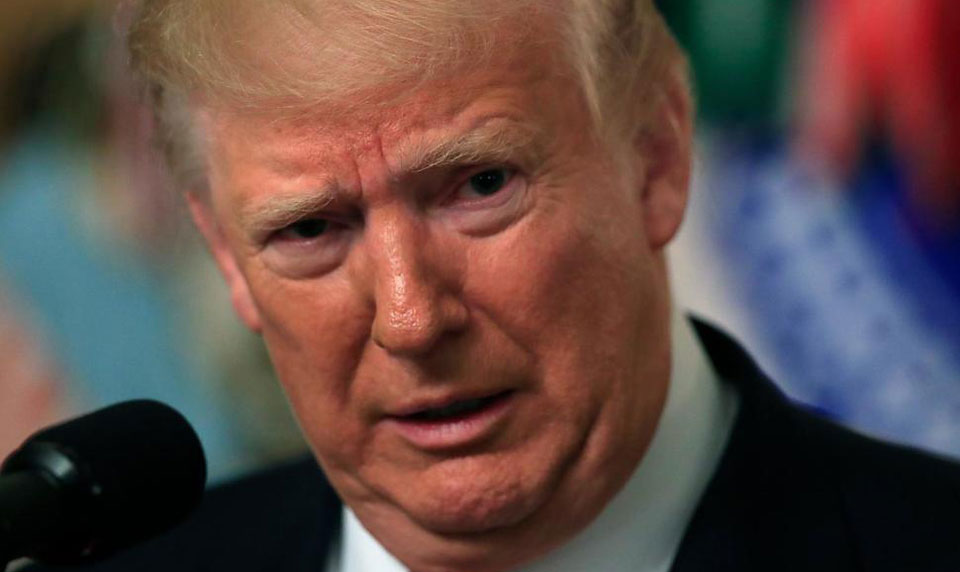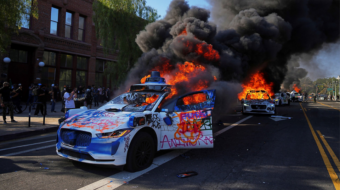
Is Trump the 2020 candidate who best represents the American working class? Did the Democratic Party fail to encompass working-class interests, issues, and people at last week’s convention?
What does the working class think?
Washington Post columnist Marc Thiessen seems to think the working class heard nothing of interest from the Democrats and their convention effectively ceded the working-class vote to Trump, writing recently, “If you were a working-class Obama-Trump voter watching this week’s convention, you heard a lot about gun violence, racial justice, and climate change, but not much directed at you. The message you heard was: Democrats are not interested in your support.”
Let’s put aside the fact that Trump himself has repeatedly insisted workers’ wages must be slashed to make America globally competitive, persistently sought to destroy the Affordable Care Act that helps make affordable health care accessible to the many, and fought vigorously against attempts by workers in his own businesses to unionize.
Let’s first look at what some workers themselves have to say and then at how the Democratic National Convention gave voice to workers and their interests.
At a rally Thursday in Akron, Ohio, Bill Conner, the sub-district director of District 1 of the United Steelworkers, railed against President Donald Trump’s most recent attack on American workers.
It “scares the hell” out of him, he told the crowd. “And it ought to scare the hell out of every working man and woman in this country,” he continued.
The attack he was talking about was Trump’s promotion of a boycott against Goodyear tire because, presumably, the company included a slide in a presentation at a Topeka, Kansas, plant that indicated “Make America Great Again” attire was unacceptable in the workplace. The company denied distributing or using such a slide in a diversity training presentation but stood by its policy that workers must “refrain from workplace expressions in support of political campaigning for any candidate or political party.”
Trump accused the company of “playing politics” in his press briefing last Wednesday following his tweet promoting the boycott. He wasn’t “happy” with the company.
Well, now who is playing partisan politics with workers’ lives and the livelihood of an American company, with the economy itself, in the midst of a pandemic that has thrust the nation into deep recession and the largest number of job losses since the Great Depression?
It is the workers who have a right to not be “happy” with the nation’s president, wouldn’t you say? As State Representative Tavia Galonski put it at the rally, Trump was effectively trying to “hand a pink slip to 3,300 workers,” the number of workers Goodyear employs in that Ohio region.
Trump, as former President Barack Obama made clear in his speech at last week’s convention, hasn’t lifted a finger to help the working class and has fought vigorously against their interests. Thiessen says nothing about that.
As Obama said, Trump has shown no interest in using “the awesome power of his office to help anyone but himself and his friends.” He underscored how in the economic collapse Trump has overseen, “millions of jobs are gone while those at the top take in more than ever.”
Obama stressed how Biden is focused on the condition of American workers and concerned with re-building an economy to make life easier for “the waitress trying to raise a kid on her own” or “the shift worker always on the edge of being laid off.”
He expressed an understanding of “why the white factory worker who’s seen his wages cut and his job shipped overseas might feel like the government isn’t looking out for him” or “why a Black mom might feel like it never looked out for her.”
Obama’s speech encapsulated much, and we need to see that he, in line with the content of much of the convention, was seeking a new language to talk about class structure and the working class in America, one that encompasses its full diversity.
But it wasn’t just Obama.
During the roll call of delegates, we saw a white male worker in Ohio, a member of the International Brotherhood of Electrical Workers, award delegates to Biden, expressing his frustration with being “screwed” by Trump. In Michigan, a black worker and white worker awarded delegates. We saw teachers in West Virginia and around the nation speaking up wearing their union t-shirts.
And when Pete Buttigieg talked about how now gay, lesbian, and transgender people can no longer be fired because who they are, he was talking about the interests of workers.
When Kamala Harris and others address structural racism, they were addressing a key feature of society that sustains economic inequality and working-class oppression.
When Elizabeth Warren talked about the need for childcare infrastructure, she was addressing working-class issues.
It’s hard to know what Thiessen saw or was listening to when he said the Democratic National Convention did not speak to workers.
What I saw was a party making the effort to enable the working class to represent itself in its full diversity, presenting a platform that encompassed a broad array of issues impacting those who have not been enjoying the fruits of the wealth they are helping to produce in the U.S. but instead find themselves vulnerable at every turn.
When Galonski spoke at the rally in Akron, she said, “What I’d like to say is, ‘Don’t buy Donald Trump,’ because basically he’s been selling you a bill of goods for over four years.”
Maybe Thiessen bought this bill of goods.
Or maybe he just hasn’t learned to listen to the language of class and working-class identity on display at the convention.
Or maybe Thiessen believes that what it means to talk to and for the working class is to stoke racism and feed frustration, rather than speak to their need for health care, child care, strong union representation, and more.
I’ll be the first to admit the Democratic Party has historically been less than perfect on addressing class issues and encompassing working-class concerns.
But Thiessen’s deafness to what happened at the convention is surpassed only by his deafness to Trump’s hostility toward and defrauding of working-class voters.










